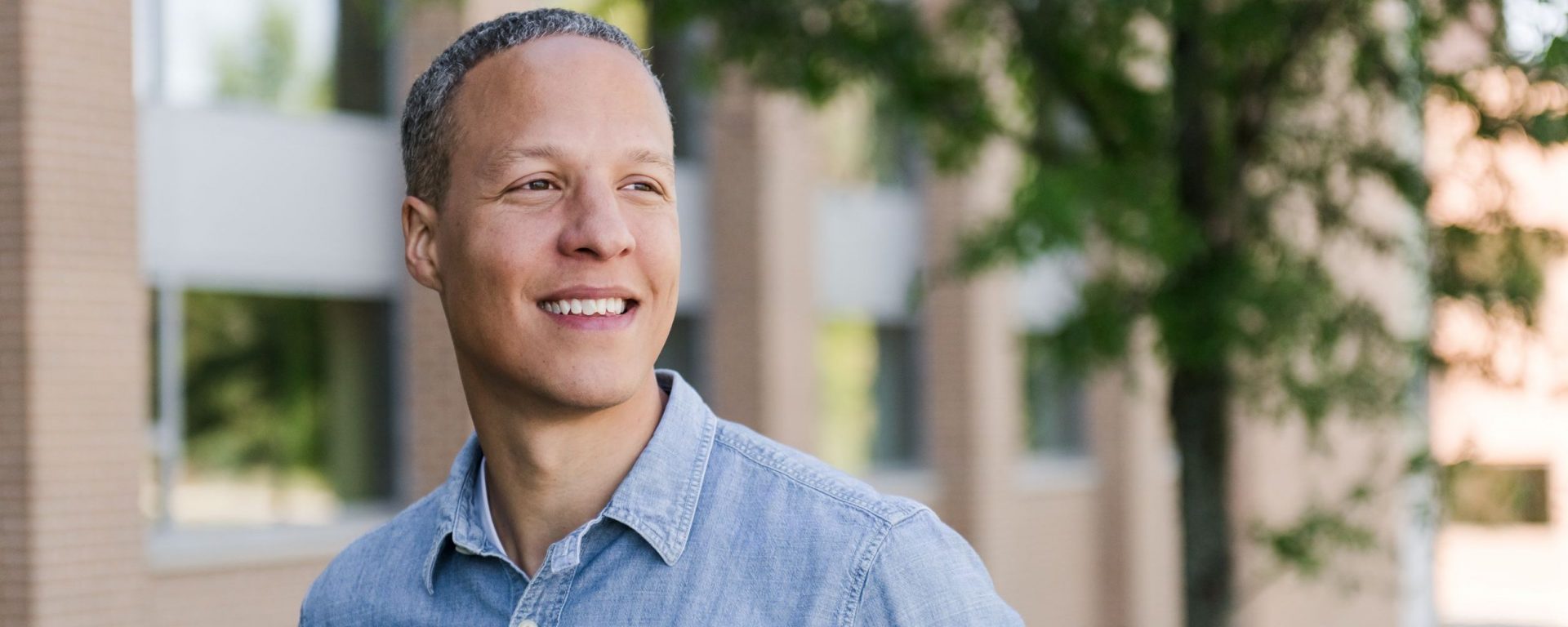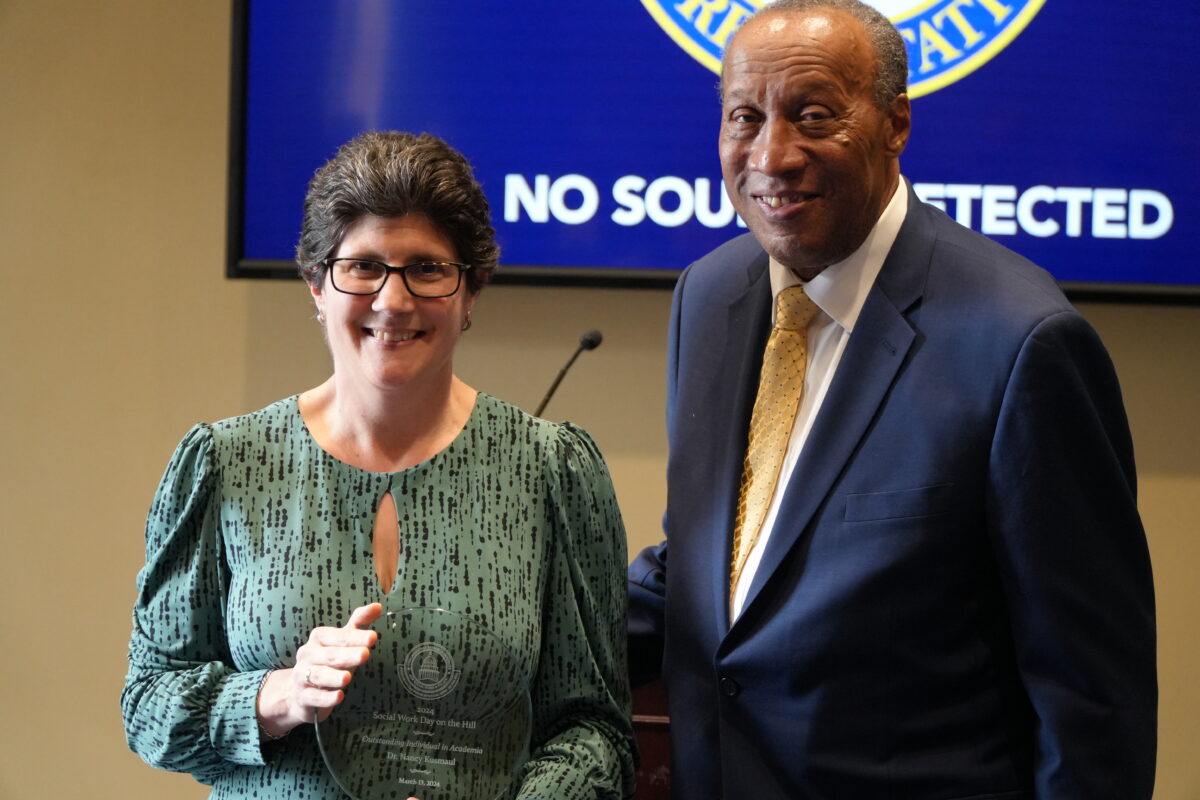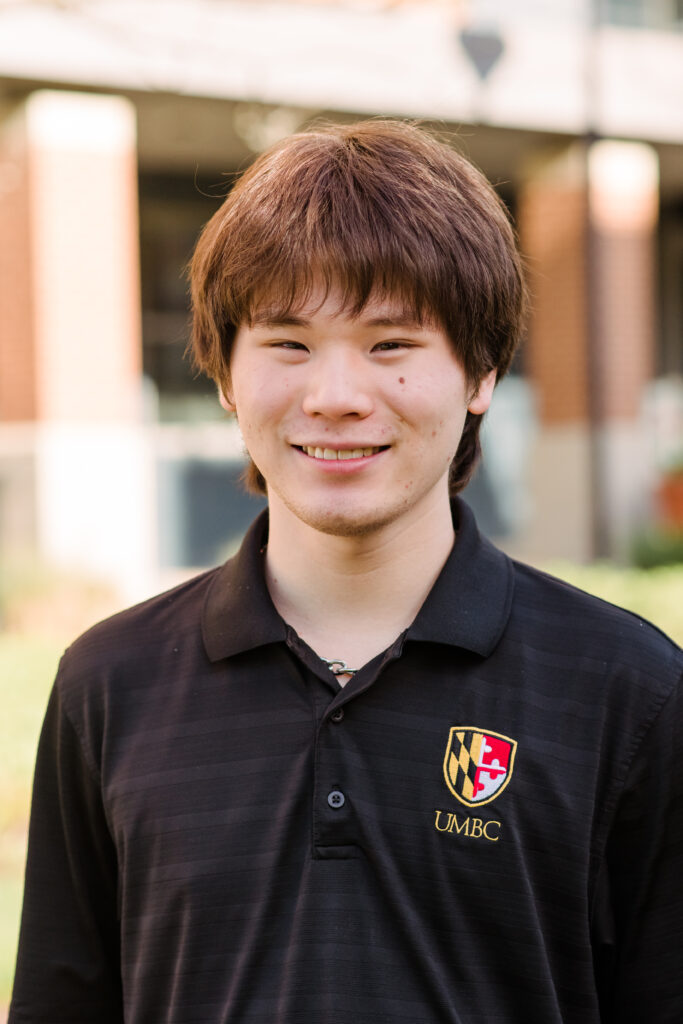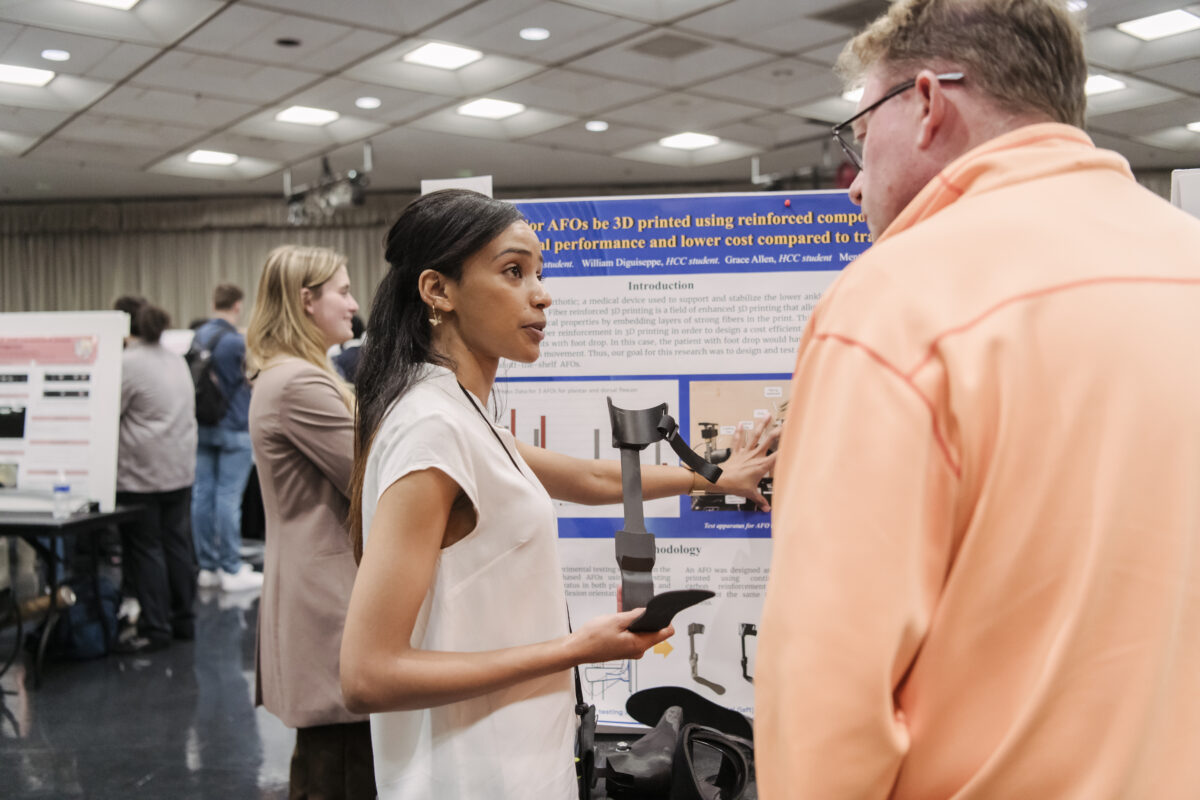Readers of The New York Times opened their papers today to see a full-page announcement of the 2022 Andrew Carnegie Fellows, including UMBC’s George Derek Musgrove ‘97, history. Musgrove, an associate professor of history, is one of 28 scholars across the U.S. to receive the prestigious award this year, from nearly 300 nominations.
“Dr. Musgrove’s selection for the Carnegie Fellowship is further confirmation of the great work happening in the humanities at UMBC,” says Kimberly Moffitt, dean of the College of Arts, Humanities, and Social Sciences. “We are appreciative of Carnegie’s recognition of his work and of the human experience during such a moment in history.”
The fellowship, from the Carnegie Corporation of New York, provides recipients with $200,000 to further their research in the humanities and the social sciences. The goal: to support the publication of a book or a study that tackles today’s most challenging problems. Musgrove’s forthcoming book will focus on the Black political mobilizations that rose in opposition to the economic recession of the early 1980s and the resulting rise in conservative politics—what he calls the “Black Power resurgence.”
Public impact research
“Receiving the Carnegie Fellowship is a real honor. It is also a powerful endorsement of the importance of exploring the Black political and cultural mobilizations of the 1980s and ‘90s,” says Musgrove. “We continue to live in the world those activists helped make and to fight the battles that those activists fought,” says Musgrove.
He shares that he is excited to continue his work on this important period of U.S. political and cultural history. “I am humbled that I will have the opportunity to do so in the company of the brilliant class of 2022 Carnegie Fellows,” he says.
The Carnegie Corporation of New York sought recommendations of fellows from more than 600 universities, nonprofits, think tanks, and other leaders nationwide. A distinguished panel of 13 jurors made the final fellow selections. This group included heads of some of the world’s preeminent institutions dedicated to the advancement of knowledge.
“This award speaks volumes about Derek Musgrove and the impact his work is having on our society,” says UMBC President Freeman Hrabowski. “He is both a UMBC alumnus and an esteemed faculty member here, and he represents the best of UMBC.”
Black power resurgence
Musgrove’s book project, “We must take to the streets again:” The Black Power Resurgence in Conservative America, 1980 – 1997, aims to provide an in-depth history of the years between the Civil Rights movement and today’s Black Lives Matter movement.
Musgrove has already devoted years of archival study to the project. He has spent hours examining documents from the National Black Leadership Roundtable, Southern Christian Leadership Conference, NAACP, and National Council of Negro Women. The fellowship will allow him to travel to additional archives and interview activists, community members, and political leaders.
Musgrove plans to engage fellow scholars and the community at large to explore these histories through several points of connection. These include speaking engagements, writing op-eds, building a project website with archival materials, and organizing a conference on the “Black 1980s.”
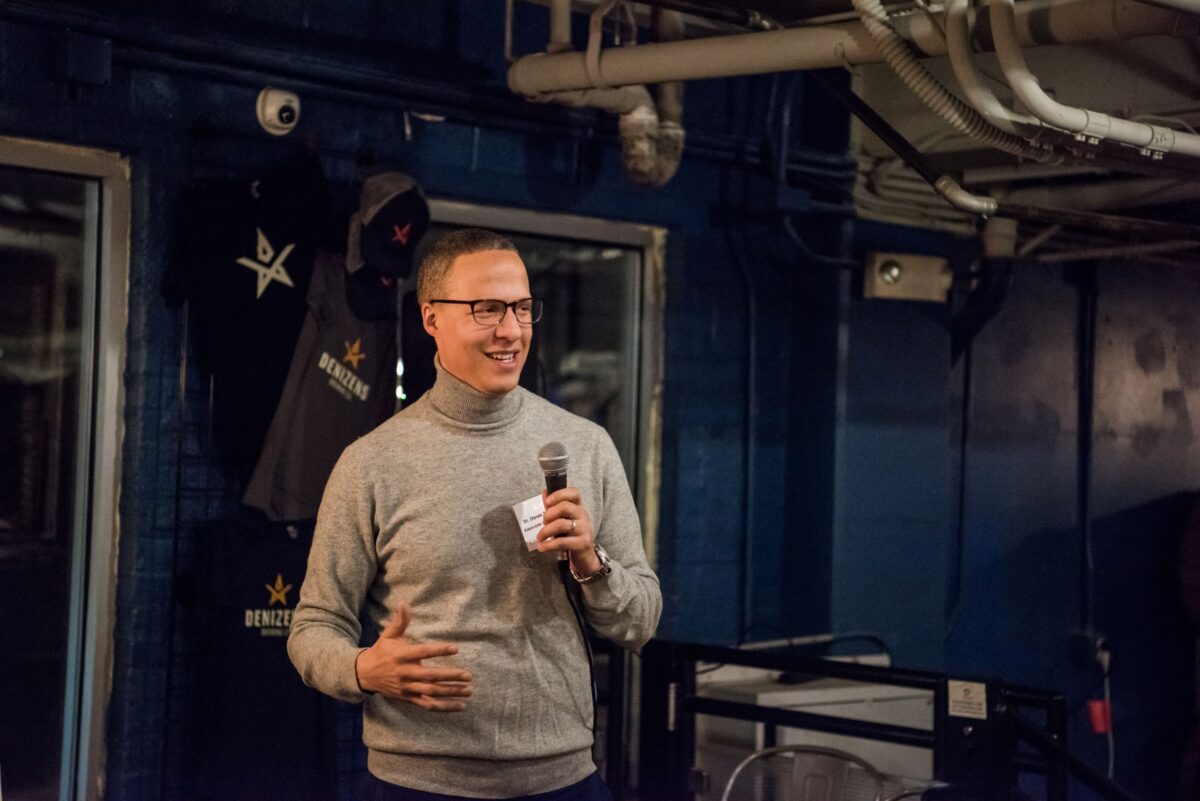
UMBC’s Alumni Bar Talk series.
This commitment to sharing historical knowledge with the public has long been part of Musgrove’s approach to historical research and teaching. “Dr. Musgrove is a generous mentor and teacher, and active in service to the history department, UMBC, and the greater community,” says Amy Froide, professor and chair of history. “He does all this while teaching large undergraduate courses in African American and Civil Rights history and mentoring both graduate and undergraduate students. His scholarship, pedagogical ideas, and collegial service contribute so much to the history department and UMBC.”
D.C.’s place in history
This new work will also further Musgrove’s highly acclaimed research on African American history in the nation’s capital, completed over the past decade.
Last year, Musgrove created Black Power in Washington, D.C., 1961 – 1998, an interactive website that maps 185 major events and organizations of the Black Power movement and its resurgence in Washington D.C.
In 2017, Musgrove published Chocolate City: A History of Race and Democracy in D.C. (University of North Carolina Press) with coauthor Chris Myers Asch. They launched the book at a special event at the National Museum of African American History and Culture, which opened just one year earlier. The book covers 400 years of race and democracy in Washington D.C.
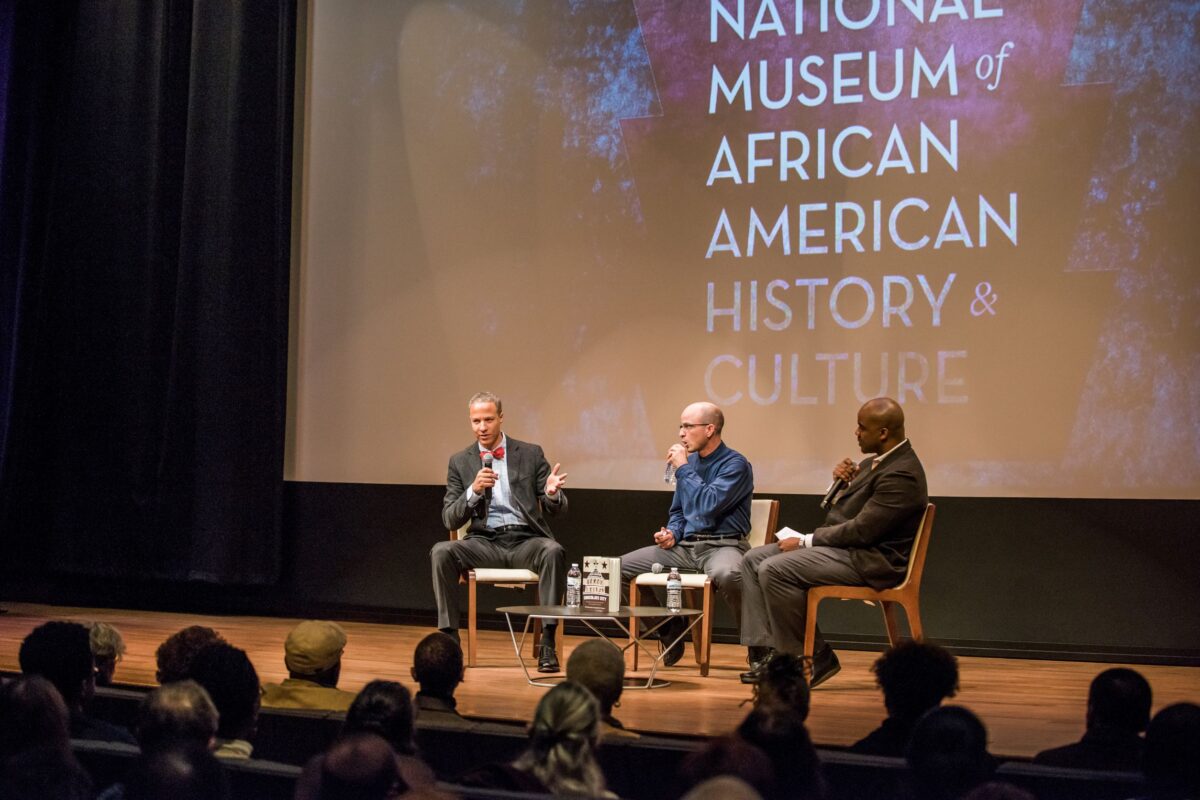
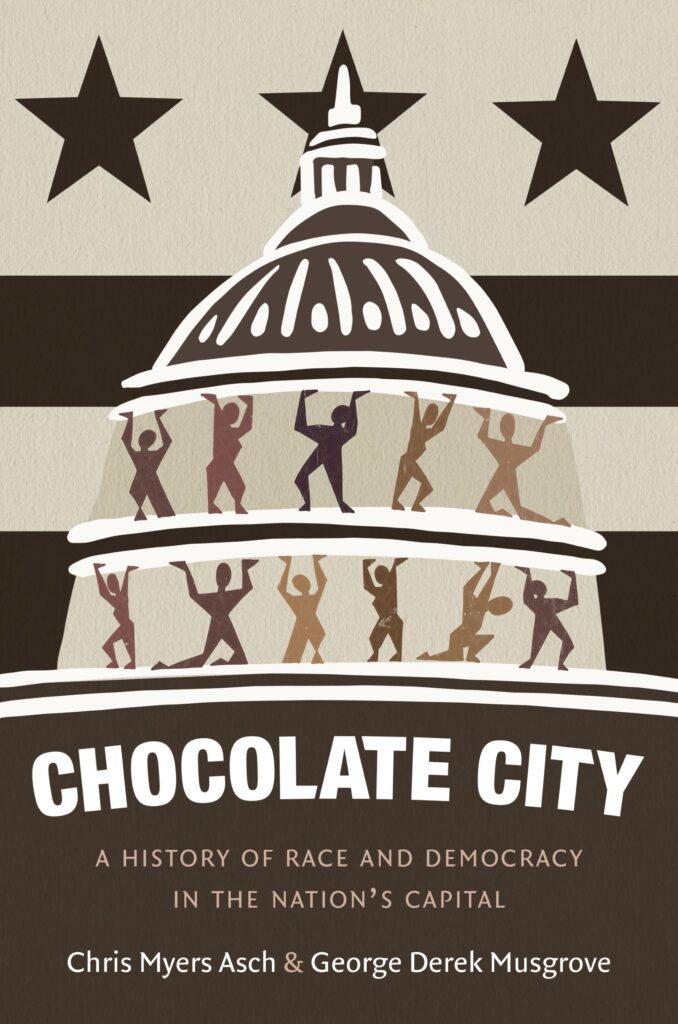
Chocolate City garnered coverage in The Washington Post, NPR, C-SPAN, and other outlets. Black Power in Washington, D.C., 1961 – 1998 also received significant media coverage and inspired conversations about Black political communities in D.C.
“Chocolate City established Dr. Musgrove as one of the leading scholars of Black and urban politics in the post-Civil Rights era,” says Froide. She notes the book has appealed to a wide audience, is being read in public schools, and has attracted the attention of political and policy leaders alike. “He is a consummate historian who is also a trusted voice for political and policy action.”
Musgrove is UMBC’s second Carnegie Fellow, following historian Kate Brown, now a professor at MIT. She received a 2016 Carnegie Fellowship for nuclear disaster research.
Feature image: Derek Musgrove. All photos by Marlayna Demond ‘11 unless otherwise noted.
Tags: CAHSS, cahssresearch, DresherCenter, History, Research

